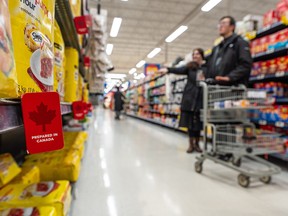Politics
Trump’s Tariff Strategy Faces Scrutiny Ahead of Canada Deadline

Ahead of a July 25 deadline, President Donald Trump has raised concerns about trade relations with Canada, stating he has not experienced much success in negotiations. His ongoing focus on the United States’ trade deficit has led him to argue that foreign nations, including Canada, must commit to purchasing more American goods to balance the scales. Critics argue that such assertions overlook fundamental economic realities.
Trump has frequently expressed dissatisfaction with the imbalance in trade, claiming that the U.S. imports more from Canada than it exports. This perspective, however, fails to account for the significant difference in population between the two countries, with Canada’s population nearing 42 million compared to the U.S. population of 342 million. Such demographic differences impact trade volumes and should be considered when discussing trade agreements.
Criticism of Trump’s Trade Approach
Letters to the editor highlight various perspectives on Trump’s approach. One writer criticizes what they describe as a “protection racket,” suggesting that Trump’s tariff threats serve as a means to compel foreign companies to establish operations in the U.S. This sentiment reflects a growing frustration among Canadians regarding the environmental and economic implications of U.S. corporate practices.
The letter discusses how American companies exploit Canadian resources, extracting oil and gas while contributing to environmental degradation without being held accountable for cleanup efforts. This raises questions about the fairness of trade negotiations that prioritize U.S. interests over Canadian sovereignty.
Another voice from Toronto expresses concern that Trump’s long-term strategy may involve undermining Canada’s economy to secure Arctic oil drilling rights. This writer argues that Canada must stand firm against unreasonable demands that could lead to detrimental economic consequences and increased military spending.
Calls for Greater Awareness and Action
In addition to trade concerns, advocacy for disability awareness is also gaining traction. A letter from a disabled Canadian highlights the challenges faced when using a bicycle as a mobility aid. The writer points out that under federal accessibility laws, mobility aids are not limited to traditional devices like wheelchairs. The call for better training and awareness among public-facing staff underscores the need for a cultural shift in how society perceives mobility aids and disability.
Finally, political maneuvering within Canada continues to draw scrutiny. The leader of the Conservative Party, Pierre Poilievre, has recently faced criticism for calling out long ballot protests while simultaneously navigating his own political challenges. Observers note the irony in his position, suggesting that his recent electoral defeat should have prompted a more introspective response regarding democratic practices.
As Canada approaches the deadline for potential tariff negotiations, the ongoing debate surrounding trade and domestic policy reflects a broader dialogue about national identity and economic resilience in the face of external pressures. The outcome of these discussions will likely shape Canada’s economic landscape for years to come.
-

 Politics4 weeks ago
Politics4 weeks agoSecwepemc First Nation Seeks Aboriginal Title Over Kamloops Area
-

 World5 months ago
World5 months agoScientists Unearth Ancient Antarctic Ice to Unlock Climate Secrets
-

 Entertainment5 months ago
Entertainment5 months agoTrump and McCormick to Announce $70 Billion Energy Investments
-

 Science5 months ago
Science5 months agoFour Astronauts Return to Earth After International Space Station Mission
-

 Lifestyle5 months ago
Lifestyle5 months agoTransLink Launches Food Truck Program to Boost Revenue in Vancouver
-

 Technology3 months ago
Technology3 months agoApple Notes Enhances Functionality with Markdown Support in macOS 26
-

 Lifestyle3 months ago
Lifestyle3 months agoManitoba’s Burger Champion Shines Again Amid Dining Innovations
-

 Top Stories2 months ago
Top Stories2 months agoUrgent Update: Fatal Crash on Highway 99 Claims Life of Pitt Meadows Man
-

 Politics4 months ago
Politics4 months agoUkrainian Tennis Star Elina Svitolina Faces Death Threats Online
-

 Sports5 months ago
Sports5 months agoSearch Underway for Missing Hunter Amid Hokkaido Bear Emergency
-

 Politics5 months ago
Politics5 months agoCarney Engages First Nations Leaders at Development Law Summit
-

 Technology5 months ago
Technology5 months agoFrosthaven Launches Early Access on July 31, 2025



















